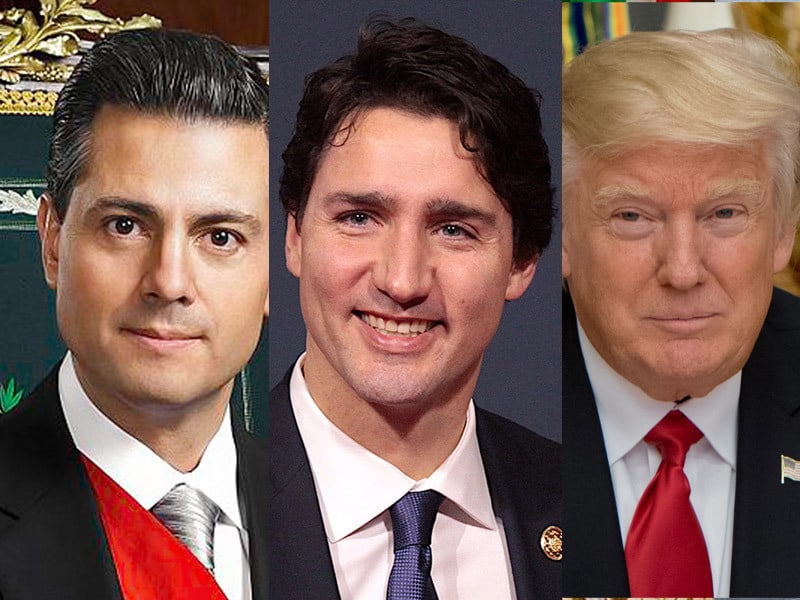
Trans-Pacific Partnership (TPP)
An agreement to benefit multinational corporations
The NFU’s TPP Campaign
The Trans-Pacific Partnership (TPP) is an expansion of the Trans-Pacific Strategic Economic Partnership Agreement (TPSEP or P4) that was signed by Brunei, Chile, New Zealand, and Singapore in 2005. Since then, the USA, Australia, Malaysia, Mexico, Peru, Vietnam, Canada, and finally, Japan joined the talks. Canada already has trade deals with the USA and Mexico (NAFTA) as well as bilateral deals with Peru, and Chile. TPP negotiators reached a tentative agreement on October 5, 2015 during Canada’s federal election campaign.
The text of the agreement was made public on November 5, 2015 along with a series of side agreement letters between Canada and individual TPP countries. The deal has not been ratified. In January 2017 the USA formally withdrew from the TPP. Canada has agreed to attend a post-TPP meeting of the remaining countries at a March 2017 meeting hosted by Chile.
Trade deals like TPP are only superficially about trade – they are ultimately designed to limit the authority of national governments over their own economies and to expand the scope and power of multinational corporations. These deals contain ratchet mechanisms, such as Investor State Dispute Settlement (ISDS), that make it difficult, if not impossible, for countries to roll back concessions and reclaim democratic control in the future. The Canadian government would abdicate much of its jurisdiction over important areas of public policy and put these powers into corporate hands by signing on to the TPP and other trade deals.
Agriculture is always contentious in these negotiations, as many countries believe it is essential to ensure that their own farmers can produce the food to feed their people. Often food carries important cultural values as well. The NFU is a member of La Via Campesina (LVC), the international organization of small farmers. In the early 1990s, LVC stood opposed to World Trade Organization (WTO) negotiations around agriculture, called for the exemption of agriculture and food from talks, and proposed instead its new concept “Food Sovereignty” as the proper guiding principle. Today, Food Sovereignty has been embraced around the world, including by the NFU, and we say trade deals and Food Sovereignty don’t mix.
Learn about the TPP
Read the NFU-PEI presentation to the International Trade Committee‘s hearing on the TPP, September 27, 2016
Read the NFU presentation to the International Trade Committee’s hearing on the TPP , April 20, 2016.
Read the NFU brief to Senate study on international market access priorities, June 2, 2015.
Destabilizing Canada’s Supply Management system
Supply Management rests on three pillars: production discipline, import controls and cost-of-production pricing. All three are interlocked, so that weakening one pillar weakens the whole system. In the first five years of the TPP agreement, the 11 TPP countries would gain tariff-free access to 3.25 per cent of Canada’s current dairy market, 2.3 per cent for eggs, 2.1 per cent for chicken, two per cent for turkey and 1.5 per cent for broiler hatching eggs. In subsequent years tariff-free access to these markets would increase.
The side letter with Australia says “Canada confirms that Australian dairy products, including those imported under HS Chapter 3504 such as milk protein concentrates, can be utilised in dairy processing in Canada to the fullest extent possible, including in cheesemaking”
The side letter with the United States commits both countries to immediately begin assessing the equivalency of each other’s pasteurized fluid milk food safety regulations, with the assessment to be done by the end of 2017.
TPP market concessions add on to those given previously through the WTO, and, if ratified, CETA. Each has chipped away at Canadian farmers’ share of our own domestic market by increasing the amount of tariff-free imports allowed.
TPP members USA, New Zealand and Australia have embraced an export-oriented approach to dairy, resulting in extended losses for farmers because the world price is quickly depressed as a result of over-production. Instead of disciplining their producers to match demand, these countries aim to sell more milk by prying open Canada’s market. However, this will not solve their problem, because selling more at prices that below the cost of production will simply increase the volume of their losses. Read more in TPP attack on Supply Management: a beggar thy neighbour strategy.
The TPP and recombinant Bovine Growth Hormone
In the 1990s the National Farmers Union, the Dairy Farmers of Canada, the Council of Canadians and numerous other citizens groups, as well as whistle-blower Health Canada scientists and their union, worked hard to keep the genetically engineered cow growth hormone rBGH (recombinant Bovine Growth Hormone – rBGH, also known as recombinant Bovine Somatotropoin – rBST) from being approved for use in Canada’s dairy herds.
- June 1, 1998 – NFU requests rBGH report be made public and authors testify at Senate hearings
- June 5, 1998 – NFU Letter to Senate Agriculture and Forestry Committee
The Senate Agriculture and Forestry Committee held hearings on the issue in 1998; and in 1999, recommended that Canada take a precautionary approach in regulating the drug.
- Oct. 5, 1998 – Senate hearings could lead to Canadian ban on growth hormone
- Oct. 21, 1998 – Senate hearings on milk hormone resume, Health Canada science reviewers to appear
- Oct. 29, 1998 – NFU testimony at Senate hearings
- Jan. 15, 1999 – Ban on bovine growth hormone a victory for Canadian cows, farmers, and consumers
Monsanto unsuccessfully appealed the government’s decision not to approve the drug, which it sells in the USA under the brand name Posilac.
